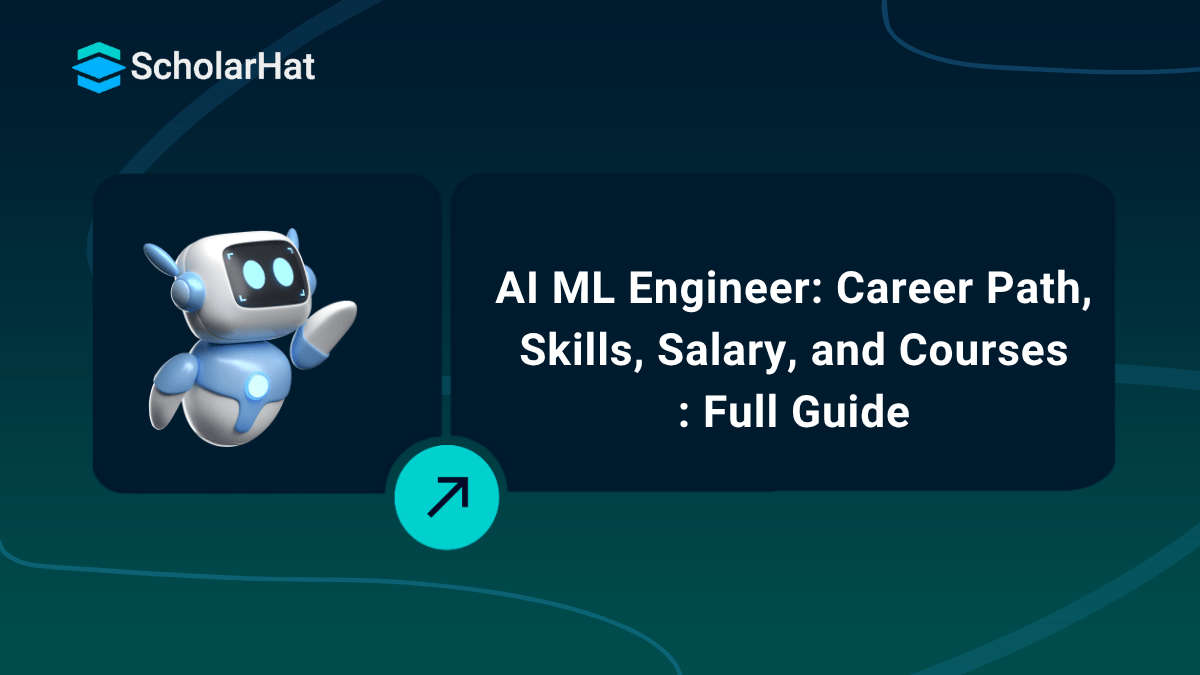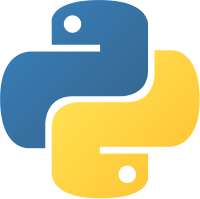20
FebAI ML Engineer: Career Path, Skills, Salary, and Courses
In the fast-paced world of technology, the role of an AI/ML Engineer is one of the most dynamic and high-demand careers. As artificial intelligence (AI) and machine learning (ML) reshape industries like healthcare, finance, and automotive, professionals in this field drive innovation. This SEO-optimized guide explores the career path, essential skills, salary expectations, and top courses for aspiring AI/ML Engineers in 2025.
Whether you're a beginner or looking to advance, this Artificial Intelligence Tutorial provides actionable insights for those searching for "AI ML Engineer career path," "skills for AI ML Engineer," "AI ML Engineer salary 2025," and "best AI ML courses."
What is an AI/ML Engineer?
An AI/ML Engineer designs, develops, and deploys machine learning models to solve real-world problems. Unlike data scientists, who focus on analysis and prototyping, AI/ML Engineers emphasize engineering—building scalable, production-ready AI systems. In 2025, they work on cutting-edge applications like natural language processing (NLP), computer vision, and generative AI.
Key responsibilities include:
- Developing data pipelines for model training.
- Optimizing algorithms for performance.
- Deploying models on cloud platforms like AWS or Azure.
The global AI market is projected to reach trillions of dollars by 2030, fueling demand for skilled engineers. AI encompasses intelligent systems, while ML focuses on algorithms that learn from data. Engineers may specialize in either or both, depending on their interests.
Career Path for AI/ML Engineers
The journey to becoming an AI/ML Engineer is structured yet flexible, with opportunities for both formally educated and self-taught professionals. Here's a breakdown of the career trajectory:
Entry-Level Roles
Most AI/ML Engineers start with a bachelor’s degree in computer science, data science, mathematics, or a related field. However, self-taught individuals with strong portfolios can also break into the field. Entry-level roles include Junior AI Engineer, Data Analyst, or ML Developer.
Steps to get started:
- Learn Fundamentals: Master Python, the primary language for ML, along with libraries like NumPy, Pandas, and Scikit-learn.
- Build Projects: Create personal projects, such as a chatbot or predictive model, using datasets from platforms like Kaggle.
- Gain Experience: Secure internships at tech companies or startups for hands-on exposure.
A roadmap from Roadmap.sh emphasizes mastering core concepts before specializing.
Mid-Level Progression
After 2-5 years, professionals can advance to roles like Machine Learning Engineer or AI Specialist. At this stage, you’ll focus on model training, evaluation, and deployment.
Key milestones:
- Contribute to open-source projects on GitHub to showcase expertise.
- Specialize in areas like NLP, computer vision, or reinforcement learning.
- Learn frameworks like TensorFlow or PyTorch for deep learning.
Career guides recommend building a portfolio of deployed models to demonstrate impact. Mid-level engineers often collaborate in agile teams with data scientists and DevOps professionals.
Senior and Leadership Roles
With 5+ years of experience, you can become a Senior AI/ML Engineer, AI Architect, or Head of AI. These roles involve leading projects, optimizing large-scale systems, and making strategic decisions.
Steps to reach senior roles:
- Pursue a master’s or PhD for research-oriented positions.
- Earn certifications to validate expertise.
- Network through conferences like NeurIPS or local AI meetups.
In 2025, trends like ethical AI and MLOps are creating new opportunities. Coursera’s job trends highlight AI Engineer as a top role. Transitioning from software engineering or data analysis is common, with many upskilling through online programs.
Tips for Advancement:
- Stay updated with research papers on arXiv.
- Engage with AI communities on Reddit or LinkedIn.
- Focus on real-world applications to strengthen your resume.
The career path offers rapid growth, especially in startups or tech giants like Google, Amazon, or Meta.
Essential Skills for AI/ML Engineers
Success as an AI/ML Engineer requires a blend of technical and soft skills. With advancements in generative AI and large language models (LLMs) in 2025, the skill set is evolving.
Technical Skills
- Programming Languages: Proficiency in Python is non-negotiable, with R or Java as secondary options. Python’s ecosystem supports rapid prototyping.
- Mathematics and Statistics: Strong grasp of linear algebra, calculus, probability, and statistics. Concepts like gradient descent are critical.
- ML Frameworks: Expertise in TensorFlow, PyTorch, and Scikit-learn for building and training models.
- Data Handling: Skills in data preprocessing, SQL, and tools like Pandas and NumPy. Knowledge of Spark is valuable for big data.
- Deep Learning: Understanding of neural networks, CNNs (for computer vision), and RNNs/Transformers (for NLP).
- MLOps and Deployment: Familiarity with Docker, Kubernetes, and cloud platforms (AWS, Azure, GCP) for scalable deployment.
- Prompt Engineering and LLMs: Expertise in fine-tuning and integrating models like GPT for generative AI tasks.
Skill lists highlight containerization and cloud services as priorities. Engineers must also address ethical AI to mitigate biases in models.
Soft Skills
- Problem-Solving: Tackling complex, ambiguous challenges.
- Communication: Explaining technical concepts to non-technical stakeholders.
- Teamwork: Collaborating in multidisciplinary teams.
- Adaptability: Keeping up with rapidly evolving technologies.
Microsoft Learn emphasizes combining software and data engineering skills. Build these through projects like a sentiment analysis tool or by contributing to open-source communities.
Self-Assessment Tips:
- Use online quizzes to evaluate your skills.
- Focus on practical applications to reinforce learning.
AI/ML Engineer Salary Expectations in 2025
The AI/ML Engineer role is lucrative due to high demand and specialized skills. Salaries in 2025 reflect this trend, with variations based on experience, location, and industry.
Average Salaries
The average US salary for an AI/ML Engineer is approximately $173,000 annually. Entry-level roles start at $120,000-$150,000, while senior roles can exceed $200,000, including bonuses and equity.
Global Salary Ranges:
- US: $145,000 median.
- Europe: £80,000-£120,000 (approx. $100,000-$150,000).
- India: ₹1,500,000-₹3,000,000 (approx. $18,000-$36,000), with top firms paying more.
Factors Influencing Salary:
- Experience: Junior: $120K; Mid: $160K; Senior: $200K+.
- Location: Tech hubs like San Francisco offer up to $450K total compensation.
- Industry: Finance, healthcare, and autonomous vehicles pay premiums.
- Education/Certifications: Advanced degrees or certifications can boost salaries by 20-30%.
At companies like Google or Meta, experienced engineers earn $170K-$200K base, with equity pushing total compensation higher.
Salary Trends
Salaries are projected to rise 10-15% in 2025 due to increased AI adoption. Freelance or consulting roles can earn up to $300/hour for experts.
Salary Table:
| Experience Level | Average US Salary | Key Factors |
|---|---|---|
| Entry-Level | $120,000 - $150,000 | Basic skills, internships |
| Mid-Level | $160,000 - $190,000 | Projects, specializations |
| Senior-Level | $200,000+ | Leadership, advanced tech |
Tips to Maximize Earnings:
- Specialize in high-demand areas like robotics or AI ethics.
- Use platforms like Glassdoor for salary negotiations.
Best Courses and Certifications for AI/ML Engineers
Education is critical for entering or advancing in AI/ML. In 2025, online courses and certifications offer flexible, high-quality learning options.
Top Online Courses and Programs
- Azure AI & Gen AI Engineer Certification Training Program by Scholarhat
- Deep Learning Specialization (Coursera): By deeplearning.ai, covers neural networks and applications.
- AI For Everyone (Coursera): Non-technical intro for beginners.
- Professional Certificate in Machine Learning & AI (MIT): Advanced, focuses on cutting-edge tech.
- Google Cloud Machine Learning Engineer (Google Cloud Skills Boost): Hands-on with GCP tools.
- Artificial Intelligence Professional Program (Stanford Online): Graduate-level, emphasizes ML and NLP.
- Machine Learning Crash Course (Google AI): Free, interactive intro.
Certifications
- Google Professional Machine Learning Engineer
- Microsoft Certified: Azure AI Engineer Associate
- IBM AI Engineering Professional Certificate
- AWS Certified Machine Learning - Specialty
Certifications validate skills and enhance employability. Combine with projects for maximum impact.
Learning Tips:
- Choose courses with hands-on labs.
- Build a portfolio with projects like a recommendation system.
Conclusion
The future for AI/ML Engineers is promising, with 23% job growth projected by 2032. Emerging technologies like quantum AI and edge computing will create new roles, while ethical AI and regulations emphasize responsible development.
In conclusion, a career as an AI/ML Engineer in 2025 offers immense opportunities. By following a structured career path, mastering essential skills, understanding salary trends, and enrolling in top courses, you can thrive in this field. Start today—build a project, take our Azure AI & Gen AI Engineer Certification Training Program, and join the AI revolution!
FAQs
- India: ₹8–20 LPA (can go up to ₹50 LPA with experience)
- US: $110,000–$160,000 per year on average
- Salaries vary depending on location, experience, and industry.
Take our Artificialintelligence skill challenge to evaluate yourself!

In less than 5 minutes, with our skill challenge, you can identify your knowledge gaps and strengths in a given skill.







